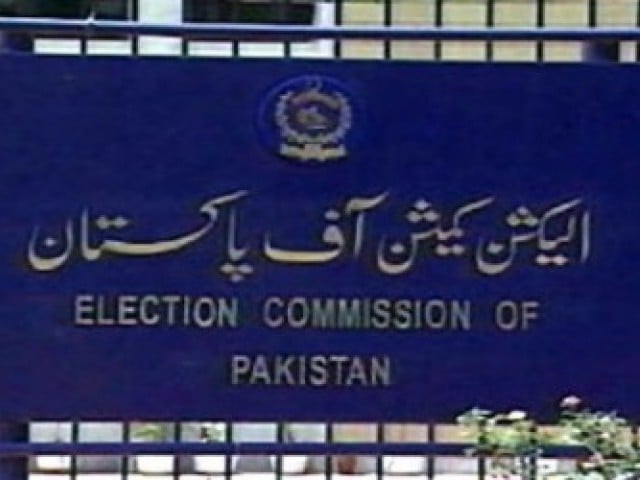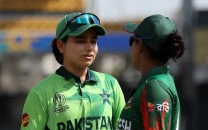Analysis: Clearing hurdles in nine working days
If Justice (R) Bhagwandas is appointed as CEC, he should be welcomed.

The new CEC, whether it is Justice Bhagwandas or anybody else, will have one advantage that almost all the members representing the provinces will complete their respective tenures during his term. PHOTO: FILE
Pressed by the Supreme Court over the chief election commissioner’s (CEC) appointment by the 19th of this month, both the prime minister and the opposition leader have agreed to propose the name of Justice (retired) Rana Bhagwandas for the post -- at least that is what reports indicate.
Bhagwandas, a man of impeccable credibility, stood firm against General Pervez Musharraf’s onslaught against superior court judges.
But the government has hardly nine working days to go through the lengthy constitutional process for appointing a CEC. Under the Constitution’s Article 213 (2A), “the Prime Minister shall in consultation with the Leader of the Opposition in the National Assembly, forward three names for appointing the Commissioner to a Parliamentary Committee for hearing and confirmation of one name.”
Now this means that the prime minister and the leader of the opposition cannot send just one name. Who are the other two nominees of these two leaders is not known yet. At the same time, the 12-member parliamentary committee, which will deliberate and select one of the nominees, is yet to be formed. And that’s not all, both the government and opposition have to sort out a legal hitch: removing the condition that a person who has retired from a government position cannot be made the CEC.
Going by the difficulties faced by Justice (retired) Fakhruddin G. Ebrahim in organising the 2013 elections as the CEC, it is a valid question that can one man no matter how honest and brave a judge he/she has been deliver a free and fair elections single-handedly?
We have to understand that the CEC does not have absolute powers, as he has just one vote as the chairman of the commission which has four members representing the country’s provinces. The provincial members are also appointed under the constitution in the same manner as the chairman. They cannot be removed at the will of the CEC as the provincial commissioners’ three-year tenure is protected by the constitution. Under the constitutional amendment, however, the new members’ term would be five years.
It was this catch-22 situation which trapped Justice (R) Fakhruddin.. He was not in a position to build his team. His mistake was that he did not even shake up the election commission’s bureaucracy in spite of some forewarning well-wishers. The only exception was the removal of Sindh commissioner Sonu Khan. At least twice he was out-voted by the provincial members who were inherited by him at the time of joining. It was well known that the members did not agree with Fakhru Bhai when he objected to having a separate voters list for the Ahmadis while all other minorities were in the common list. His view was that it should be merged with the master voters’ list as the country has done away with the separate electorate system.
Under the given circumstances and challenges, he was able to deliver an election which was accepted by most observers as free and fair, to a large extent. There is always hue and cry from the people who lose the elections -- even if by a small margin. However, even the most ardent critic Imran Khan could not prove massive rigging or partiality of the election commission.
In developing polities, you cannot have completely fair elections. In the last election the major rigging took place before the polls when, instead of intelligence agencies which cobbled IJI in the nineties, the TTP did not allow election campaigning to the left of centre political parties. The media wrath was not turned towards TTP for favouring the right-wing parties, but it was unkind to Fakhru Bhai, as he is fondly known.
In this backdrop, if a man of the stature of Justice (R) Bhagwandas, who is about 13 years younger than Fakhru Bhai, is appointed as CEC, he should be welcomed. The government and the opposition should also be given some credit for picking up a man of integrity. They know it well from his track record that he is not going to favour anybody when it would come to making a just decision.
The new CEC, whether it is Justice Bhagwandas or anybody else, will have one advantage that almost all the members representing the provinces will complete their respective tenures during his term. The new team would not be the nominee of the government alone like the outgoing provincial members as they would be nominated with the consensus of the opposition leader and be selected eventually by the 12-member parliamentary committee with equal representation of the government and the opposition. Justice Bhagwandas is a good choice and it shows maturity of the political parties.
Published in The Express Tribune, March 8th, 2014.


















COMMENTS
Comments are moderated and generally will be posted if they are on-topic and not abusive.
For more information, please see our Comments FAQ